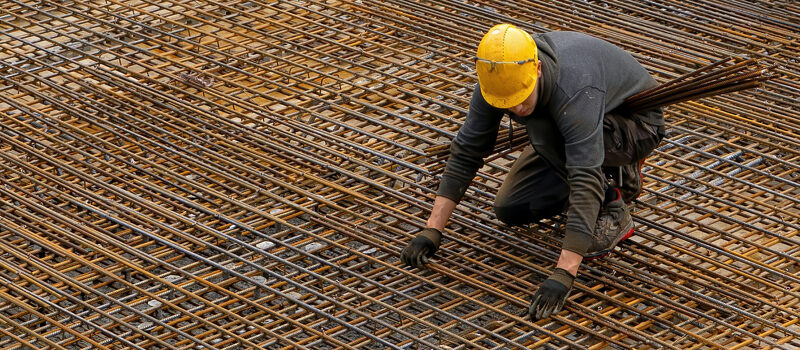The Importance of Rebar in Concrete Construction Projects
At C.R.I., we’ve noted that the importance of rebar in most concrete projects comes as a surprise to many DIYers. This revelation usually prompts the question of whether rebar is always necessary in concrete. Let’s take a closer look at what rebar is, what it does for concrete, and why it’s so important.
When it comes to absorbing stress in the form of compression, concrete can be very strong. However, concrete does not stand up well to tensile strength; it crumbles when confronted with pressures that threaten to tear it apart. In construction, concrete is subjected to both types of stress, and while it will hold up if weight is applied from the top, it will flex, deform, and crack when exposed to tensile stress.
Metal rods, aka rebar, are therefore used to reinforce concrete constructions. When rebar is used in a concrete project, the finished product has significantly higher strength than concrete alone. Buildings and roadways all benefit from this strength.
Every concrete project does not necessitate the use of rebar; but, as a general rule, if you’re pouring concrete that’s more than 5 inches thick, you should use rebar for strengthening.
For a non-commercial project requiring additional concrete reinforcement, fiber or wire mesh are becoming increasingly popular as a very good, and less expensive, alternative to rebar.
Concrete reinforced with rebar, fiber, or wire mesh is not only more durable, but it also reduces the number of cracks that develop over time. This can help save money on repairs and keep your concrete looking good for years to come.
There are various types of rebar from which to pick… Welded wire, expandable metal, stainless steel, sheet metal, and epoxy coated are the most common varieties. Each type of rebar is best suited for various types of tasks, so do your homework, or consult with a concrete expert, before picking the one that will be perfect for you.
Here are some guidelines…
- Stainless steel rebar is very corrosion resistant and an excellent choice for any concrete job in corrosive environments.
- Fiber-reinforced concrete contains fibrous material, such as steel, glass, synthetic and natural fibers, to increase its structural integrity. For flat work and driveways, it is much easier to use and does an excellent job.
- Sheet metal is a common choice for concrete floors, roofs, and stairwells.
- Wire mesh is a two-dimensional grid that runs the length and width of poured concrete but not the height.
- Epoxy-coated rebar is even more corrosion-resistant than stainless steel. It is the most durable, but also most costly, concrete reinforcement option.
As in any construction project, if you feel like you’re unable to make a sound, informed decision, consult a professional. If you have questions or would like a quote on a project, click here to contact us.
C.R.I. is a diversified contractor and grounds support company serving New Jersey.
Photo courtesy of Ricardo Gomez Angel on Unsplash

